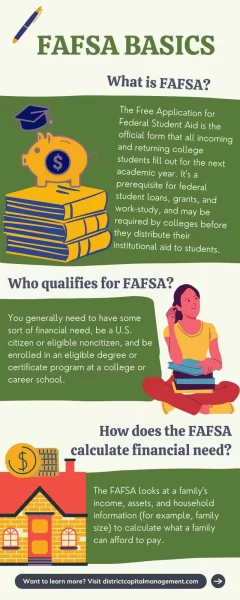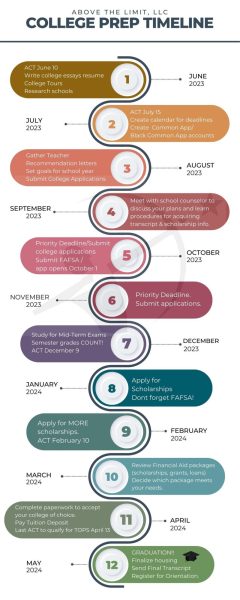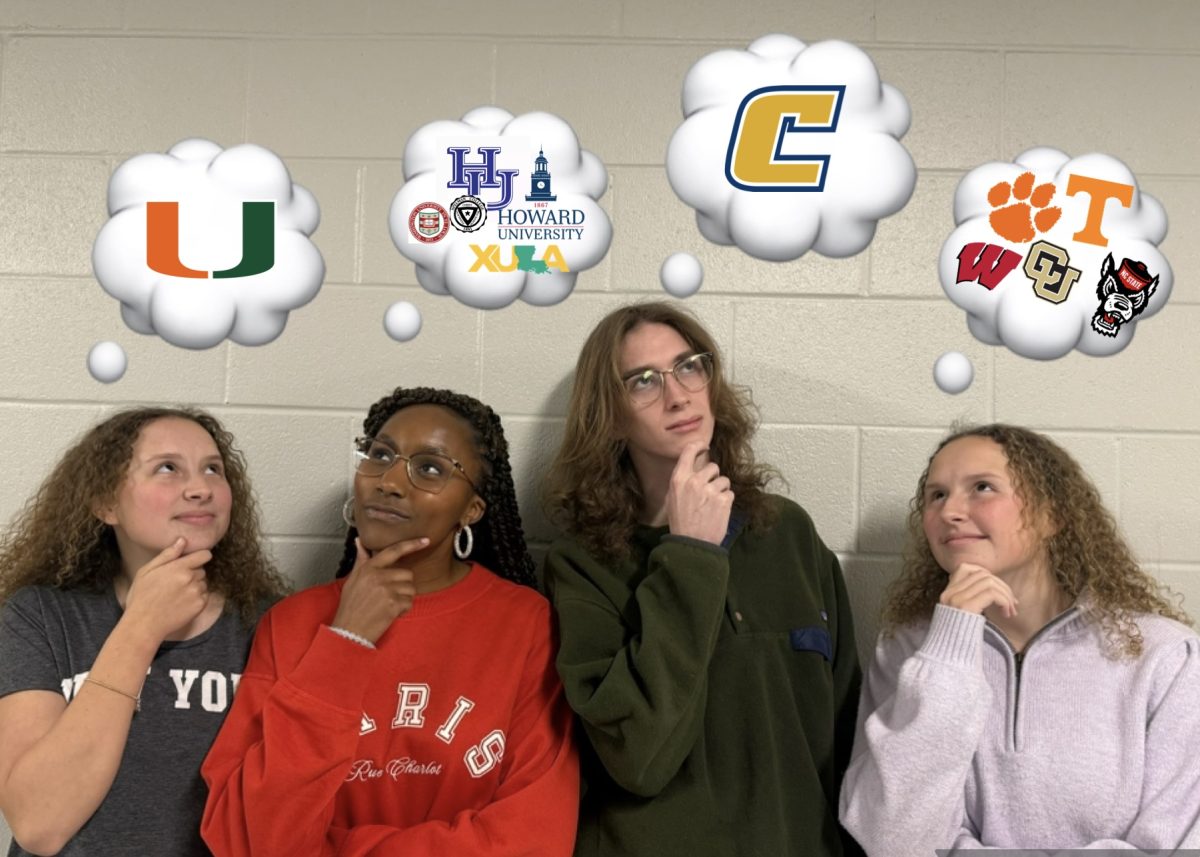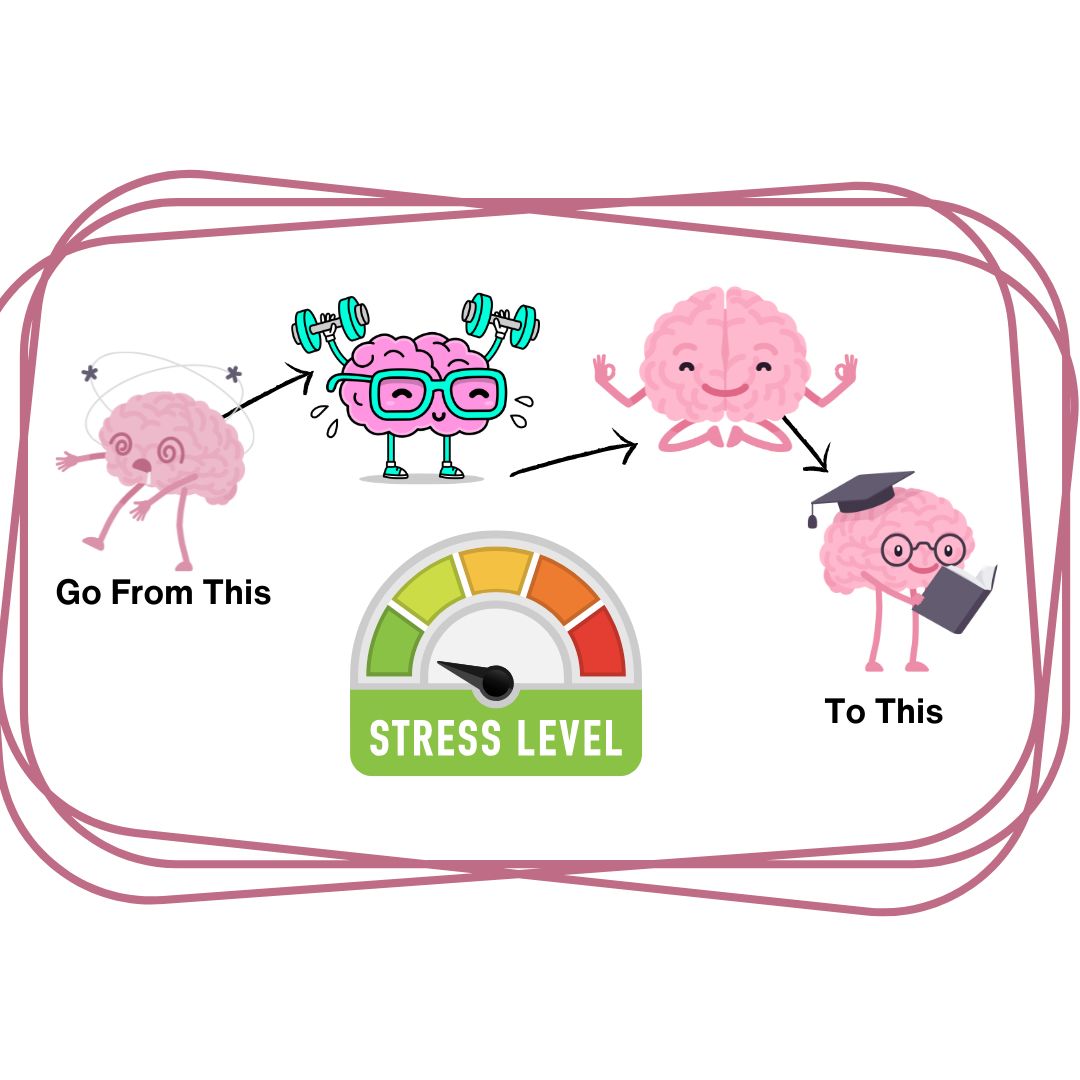Dear Hillsboro students starting the college process,
I bet you’ve been asked where you want to go to college a hundred times over by now. Do you have an answer? Do you know where you want to go to college and what you want to major in?
If you don’t, do you even know where to start looking?
The Hillsboro Globe recently talked to Hillsboro’s College and Career Readiness Coach, Angela Gilmore to get insight for students preparing to start their college journey. One of Mrs. Gilmore’s focuses is to help seniors with the admissions and enrollment process. She is also available to Hillsboro juniors to meet with her if they want to get a head start on the college process. In addition to meeting regularly one on one with seniors and juniors, her position, which is new to Hillsboro, allows her opportunities to meet with Freshman Seminar classes to inform them what they should expect in their future. Her primary goal is to meet with and help every student at Hillsboro who wants to consider a post-secondary education.
Most students have a general understanding that one’s GPA is the most important thing to focus on. However, underclassmen almost always wait till they are a senior, and waiting until then is way too late. Freshmen, sophomores and juniors should be start preparing for the SAT and ACT immediately. The higher GPAs, and ACT scores translate into larger financial aid packages.
Below are the top ten most often asked questions regarding the college prep process.
1. How do I determine best fit of a college for me?
It’s important to know that every student’s best fit is going to be different. Mrs. Gilmore’s advice is to focus on a couple main points:
- Location: Do you want to stay closer to home? Are you wanting to see the country?
- Finances: Everyone’s financial situation is different, which can also determine location. It is always going to be cheaper to go to an in-state college compared to the out of state ones.
- Size: Some people would thrive at a smaller school; others may want to see everybody and everything – The bigger the better!
- The feel/vibe: You need to physically get on the campus to figure out what the vibe is and whether you like it or not.
- Does the school offer what you want to study? Maybe the most important factor on determining if a college is best for you. Why else go to a college if they don’t have your preferred major.
2. What is the most important strategy students can use to make him or her stand out as an applicant?
There are schools that will require essays. Try to think outside of the box. It is easy to recite facts but, you need to be willing to tell them about yourself and be willing to say what makes you different from other people. Do NOT try to paint a perfect picture. Possible examples include how you handled a situation or how you came through a situation.
Another important point to remember is that admissions counselors are people, also. College admission officers love to meet students and family’s face to face which is why many schools stress taking college tours starting in the junior year. Don’t be afraid to reach out and talk to a school even if you can’t squeeze in a college tour. If you are on the campus taking a tour, pick up a business card and send them a quick email thanking them for their help and time. This helps start the communications process and sets you apart from other applicants.
3. How important is deciding a major now?
For rising juniors and rising seniors, it’s important to have an idea of what you’re interested in. Even as a senior, you don’t need to 100% know what your major will be. Some colleges will allow Freshman to enroll undecided and take general ed classes until they have a clearer idea of what major they want to purse.
To figure out possible options, you have got to take an inventory of your academic strengths and the things that you like to do. If you can find a way to merge the two, you’re looking at a happy experience.
4. How can I find schools that offer what I am interested in?
Do the research!! It’s especially important to know what each school offers and to see if it aligns with your interest. For juniors, in the spring semester, start googling and making a college list. At the beginning of senior year, Mrs. Gilmore will check in with each senior to make sure you are ready for the college deadlines.
Go on college tours. Seeing the campus or even chatting with a current student goes a long way in helping you figure out if you would be interested in a college.
5. What is the recommended timing of when to get started on applications?
The common app opens August 1st. Most schools will begin accepting around that time. Even though you can’t submit an application till this time, it is recommended that you start writing your essays at the end of the school year and definitely make sure you’re working on it throughout the summer. The essay questions are available on the common app and do not change very often.
6. Which is better? Common App or individual school websites?
When you do your research, make sure to find out if that school is a member of the Common App. The Common App is an undergraduate college admission application that applicants may use to apply to over 1,000 member colleges and universities in all 50 states. If a college is not on the common app, you will have to look at an individual school website.
7. How do I manage my time my to complete the college process if I have summer and fall activities that take up a lot of my time?
Every student needs to ask themselves, when am I free? Looking at your schedule and finding the time to put in the work to complete college prep tasks will be key, which allows for less crammed and stressful beginning of senior year.
 8. How/when should I apply for scholarships/ financial aid?
8. How/when should I apply for scholarships/ financial aid?
Financial aid: during senior year, all seniors will work on FAFSA.
Scholarships: You could apply for a scholarship today if you want to. These scholarships would be separate from the college that you are applying to. A merit scholarship is what the school may or may not provide you with upon acceptance of the school. they will use your application for the school as your application to scholarships.
9. Regarding the ACT and/or SAT – should I send my scores to anyone? How do I do that?
Schools are going to set upfront requirements. Even when a school tells you it’s test optional (it’s never really test optional) they are looking for test scores to allow you to be eligible for scholarships.
When you apply to take the ACT, there should be a list for schools that you can choose to send your scores to. The official ACT score reports after you take the ACT allows you to send your score to four colleges of your choosing for free. After that, you will have to pay around $18.50 to send a college your scores. Take advantage of the free opportunities.
10. What is the best way to best prepare for college tours?
The best college tours are where you take an official tour, but you also get the opportunity to talk to current students. These usually happen when students are on campus. One can also look at the school web site or the school YouTube channel to take a virtual tour. Some schools’ virtual tours are so high tech you can walk the campus virtually. Fortunately, for most colleges, students may be year-round.
Be aware that the beginning and the end of the semester are not a good time to take a tour. To schedule a tour is easy. You can call and schedule it or go on the college’s website and do it online. Everyone is trying to make decisions, take a group of friends and have fun with it.
Putting in the research and time as a junior and senior, will allow you the time to make a good choice for yourself and have a good time for the next four years!
If you haven’t met Ms. Gilmore and you are junior, take the time to stop by her office or email her for an appointment at: [email protected].







